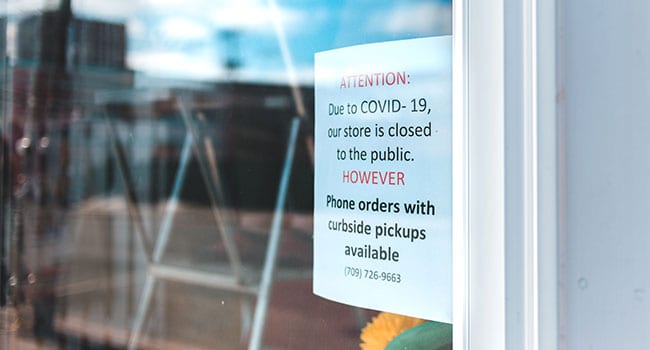 There has been global grief recently as a result of COVID-19. Many businesses have lost their identity in the process.
There has been global grief recently as a result of COVID-19. Many businesses have lost their identity in the process.
Uncertain how to let go of what once was, scared to move forward for fear of throwing out a previously viable vision, leaders are challenged to find their space within this new era of business.
Traditional business customs were taken away in a matter of days, interrupting key connections, communications and communities that business owners and entrepreneurs relied on for growth.
No more handshakes. No more lunch meetings. No more brainstorming sessions with colleagues over coffee and donuts.
Grief is the natural response to any loss. At its very core, grief is an emotional suffering when someone or something you care about is taken from you.
Even with the many positive changes that have demonstrated how innovative entrepreneurs are, it’s important to properly say goodbye to what once was. If not, we may find ourselves holding on to grief, inadvertently harming how we can now better serve our purpose and clients.
From the loss of teams due to downsizing, the removal of company habits (e.g. handshakes, hugs, even high fives), long-standing clients and partnerships, to values that were the basis for whole business systems and internal cultures that no longer serve, grief in business takes many forms.
It’s what we do to release the grief that will help us move forward or remain stagnant. For leaders, taking the steps to accept this grief and demonstrate how to do so will set the right tone and culture needed for actionable growth.
Acknowledge what you, the business owner, have lost
Even if you adapted with ease and business is thriving, you may still feel grief for how you thought you were going to grow.
Regardless of the opportunities that are before you, your pain of loss is still valid. This includes letting go of how you thought your success would look.
Acknowledge that pain, knowing that with growth there will always come growing pains. This is true for any business going through a transition regardless of market or world circumstances.
Talk to someone about your business grief
It’s okay to struggle with letting go. A vision of what your business was going be, of how you were going to serve clients, of the strategies that you were building – these were tangible to you and it can be hard to know how to say goodbye to them.
Reach out to someone who will listen without judgment to support you in acknowledging the grief, but also in releasing it from your company.
Individuals such as a psychologist or counsellor, a trained grief counsellor or even a business coach (best if they have some form of applied positive psychology) are trained to provide you with tools to move through emotions in a healthy and impactful manner.
This allows you to honour what was, while lessening any resistance to your newly committed business.
Provide space to work through your grief
Give dedicated time and space for you and your team to grieve. Be patient with yourselves.
To support this, write down what you’re feeling without any judgment. If you’re surprised to feel this grief, why? If you’re missing only certain things about how you used to do business, what were they? Can you bring them to life in a new way or is there a way you can say goodbye with closure?
The truth owners come to understand is that business is a continual series of small endings and beginnings. As such, grief is a natural part of any business cycle.
Learning how to sit with grief, move through it and then let go so you can continue to capitalize on opportunities ahead is part of business ownership.
Even more, demonstrating this vulnerability in releasing your grief builds greater trust with the people you’re still connected with.
While healing the larger global grief will take time, normalizing the grieving process in relation to business ownership is a beautiful opportunity to rebuild a vision while recommitting to a business purpose in the face of consistent loss.
How has loss been used in your business cycle or transition? Share your insights and questions with Lindsay. Contact [email protected]
Lindsay Harle-Kadatz is a brand and content strategist supporting overwhelmed leaders with the mental wellness of their business brand. Follow Lindsay on LinkedIn and Instagram.
Lindsay Harle-Kadatz is a Troy Media Thought Leader. Why aren’t you?
The views, opinions and positions expressed by columnists and contributors are the author’s alone. They do not inherently or expressly reflect the views, opinions and/or positions of our publication.


